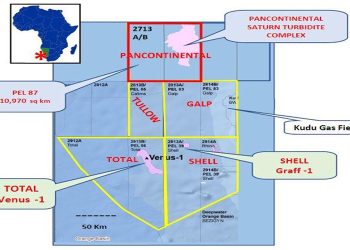
Namibia has been selected as one of the first countries to participate in the Climate Investment Funds’ (CIF) N$18 billion (US$1 billion) Industry Decarbonisation Programme, a major step in advancing its green hydrogen ambitions and green industrialisation efforts.
The country, through the Namibia Green Hydrogen Programme (NGHP), ranked third globally in the selection process and will now develop a national investment plan to access up to N$4.4 billion (US$250 million) in concessional finance.
James Mnyupe, Head of the NGHP, confirmed the development, saying the funding will help Namibia decarbonise high-emission industries, develop clean technology supply chains, and attract further investment into low to net-zero carbon business models.
“We basically get an opportunity to ask for up to N$4.4 billion of very concessional money,30-year tenor, eight-year grace period, at a 1.1% cost of capital,which will be blended with funding from the World Bank, IFC, and AfDB to mobilise more than N$44 billion in strategic funding for our private sector to build out green industrialisation as envisioned in the Green Industrialisation Blueprint,” Mnyupe said.
He added that the programme will enable Namibia to build green value chains in critical minerals, renewable energy, and green hydrogen, while also supporting energy security, decarbonising the regional power pool, and creating green jobs through inclusive development.
“We look forward to co-developing an investment plan aligned with our forthcoming Sixth National Development Plan (NDP6). Green industrialisation will be a key driver of inclusive economic growth, job creation, and progressive climate action for Namibia,” Mnyupe said.
The bid was spearheaded by the Ministry of Finance, in partnership with the Namibia Green Hydrogen Programme and global asset manager Ninety One.
The initiative aligns with the country’s ambition to attract foreign direct investment and promote sustainable, inclusive growth.
Finance Minister Ericah Shafudah said the government remains committed to using targeted investment to address socio-economic challenges.
“The Government of the Republic of Namibia is committed to mobilising fit-for-purpose capital to drive socio-economic emancipation. This programme allows us to build future-proof industrial clusters that deliver jobs, growth, and climate resilience,” Shafudah said.
The CIF programme is expected to support recipient countries in tapping into the growing global green industrial goods market, estimated to be worth N$35 trillion (US$2 trillion) by 2030.
Namibia now joins Egypt and South Africa as one of the African countries selected for the inaugural round of the Industry Decarbonisation Programme.







